Search Results
Showing results 81 to 100 of 160
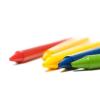
Spinning Your (Color) Wheels
Source Institutions
In this optics activity, learners use everyday materials to make a color wheel. When learners spin the wheel like a top, they will be surprised to see all the colors mixing together to appear white.
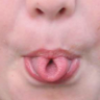
Family Traits and Traditions
Source Institutions
In this activity, learners play a matching game with their families to discover common inherited traits and traditions. Learners distinguish between inherited traits and learned traditions.
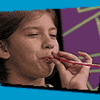
Straw Kazoo
Source Institutions
In this activity, learners make some music by constructing a kazoo out of a simple plastic drinking straw. Use this activity to explore sound, vibrations, and music.
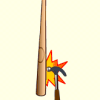
Finding the Sweet Spot
Source Institutions
In this activity, learners will discover how to find the "sweet spots" on a baseball bat. Whenever an object is struck, it vibrates in response.
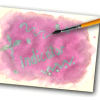
Indicator Paper
Source Institutions
Use grape juice, baking soda, water and vinegar to make acid and base indicator paper! This activity contains a recipe and instructions for the indicator paper.

Marshmallow Models
Source Institutions
No glue is needed for learners of any age to become marshmallow architects or engineers.
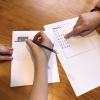
Squeezing Pictures Into Codes
Source Institutions
In this activity, learners will explore how computers represent pictures using pixels.
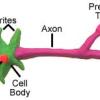
The Model Neuron
Source Institutions
In this activity, learners create a model of a neuron by using colored clay or play dough. Learners use diagrams to build the model and then label the parts on a piece of paper.
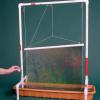
Soap-Film Painting
Source Institutions
Make a big canvas of iridescent color with pvc pipe! In this Exploratorium Science Snack, you'll need to cut and assemble some PVC pipe, but the pay-off, the soap-bubble canvas, is big.
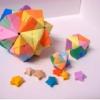
Paperfolding Polyhedrons
Source Institutions
In this activity (on pages 55-66 of PDF), learners fold paper into origami shapes and then combine several identical shapes into a three-dimensional structure.
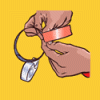
Loopy Geometry
Source Institutions
Discover geometry by creating shapes from loops of paper. In this activity, paper loops transform to give you totally new structures when you cut them.
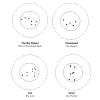
Constellation Scope
Source Institutions
In this activity, young learners explore the basic shapes of constellations by making their own scope out of a cardboard tube and paper with pinpricks.

Stack 'Em Up
Source Institutions
In this simple and fun activity, learners build a tower of cups to explore distribution of weight. Learners make predictions about their towers and test their designs.
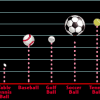
Bouncing Balls
Source Institutions
When baseball was in its infancy, the ball had plenty of bounce. Today's baseball may not seem to have bounce to it at all; if you drop a ball on the field it won't bounce back.
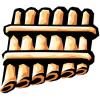
Straw Pipes
Source Institutions
Learners build pan pipes out of drinking straws by cutting them to different lengths. Then, learners make music by blowing across the straws and playing some well-known songs.
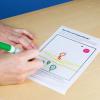
Exploring the Universe: Imagining Life
Source Institutions
“Exploring the Universe: Imagining Life” is a hands-on activity in which visitors imagine and draw an extreme environment beyond Earth, then invent a living thing that could thrive in it.
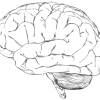
Train Your Brain
Source Institutions
In this activity, learners play a trick on their own brain to see if the brain can learn to ignore distracting input. Colors and words are used to play the visual trick, known as a Stroop Test.
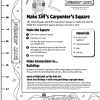
Make Ziff's Carpenter's Square
Source Institutions
In this Cyberchase activity, learners make carpenter's squares and use them to measure square corners. Learners cut out the carpenter's square template and attach it to tagboard.
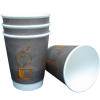
What Can You Make of It?
Source Institutions
In this activity (located on page 2 of PDF), learners explore alternative uses of a simple paper cup, dubbed a "mystery item." Learners act as detectives and explore the properties and functions of th
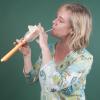
Waterbottle Membranophone
Source Institutions
In this activity, you'll use a straw, a water bottle and a paper tube to make an instrument that's very much like a saxophone.
